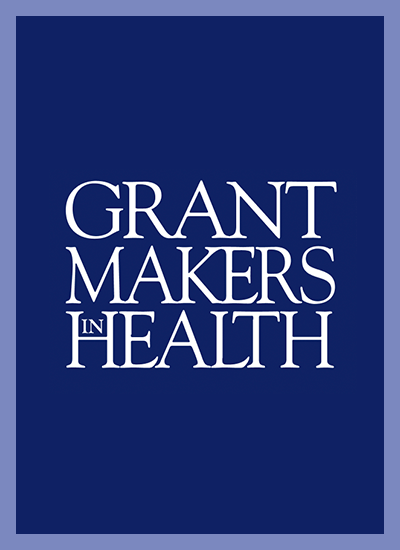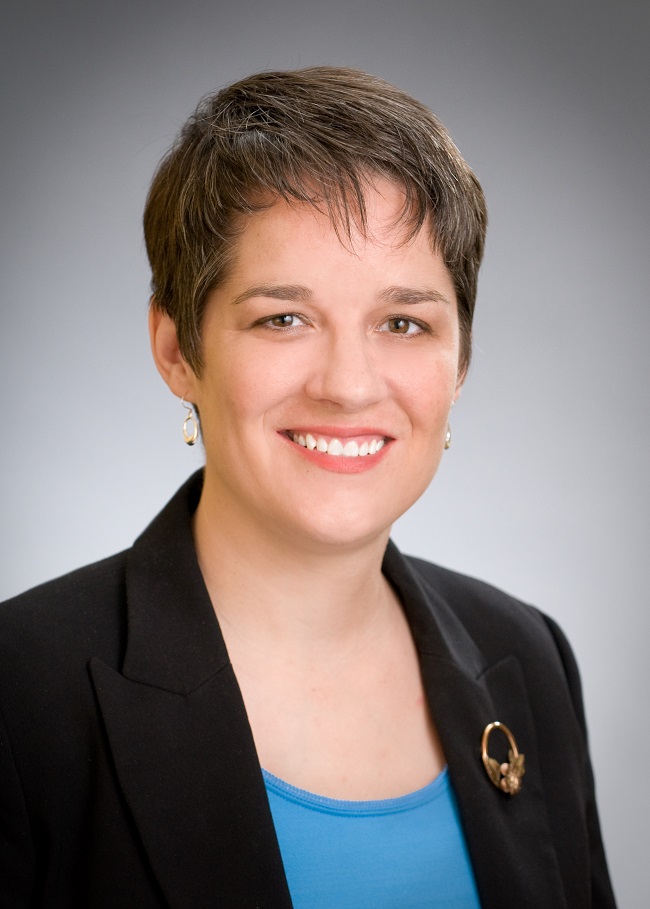June 2018

Lori Fuller, Director of Evaluation and Learning, Kate B. Reynolds Charitable Trust
Each year, GIH asks health funders to share their thoughts on our annual conference theme. This year, we’ve asked evaluators from foundations to reflect on our 2018 conference theme, Navigating Currents of Change.

At the Kate B. Reynolds Charitable Trust, we are in the midst of a long journey to transform our approach to philanthropy—from responsive and charitable to focused and strategic—and to deepen the impact we have in the communities we serve. What began as a slow, gentle shift in the wind has become a swift undercurrent that propels us to do more to make lasting change because the communities we serve deserve our focused attention to turn the tide as quickly as we can.
The vision of our founder, Kate Bitting Reynolds, has guided our journey like a lighthouse on the horizon. She was a woman of great vision and compassion, whose generosity in life was surpassed only by her philanthropy toward future generations, and the recognition that the status quo leaves too many people and communities behind. That is why she chose to focus on health, education, and economic opportunity for the most vulnerable in North Carolina and specifically in Forsyth County where she lived.
As the currents of change in our society have quickly shifted, our work has become more important, challenging and complex. That is why the Trust has made a commitment to working differently in communities to have a greater effect on marginalized residents. This means believing in the power of community to make change; listening closely to community members about what they need to thrive; engaging unlikely partners; and always keeping equity in mind when we work to change systems.
In 2016 we added a new captain to our ship. Dr. Laura Gerald joined the Trust as our president and through her leadership we are being more intentional about the changes we want to see. We are more clearly defining and recording our goals and strategies, and working to name clear outcomes. In turn, we have doubled down on community listening and engagement to make sure that as we shift we remain in alignment with the communities we serve.
As the trajectory of our organization has changed, so has my role as an evaluator. I am now supporting (and at times leading) the crew, helping to draw and read the maps of where we are going, and teaching them how to navigate with evidence and shift our course when storms arise.
Changing the Role of the Program Officer
More than six years ago, we began this journey by changing the role of our program officers. No longer are our program officers sitting at desks reviewing grant applications; instead they have become true ambassadors of the Trust, immersed in communities and listening to residents’ needs and ideas.
It has not always been easy, and we experienced some program staff turnover because of it. But those who stayed—as well as those who have joined us since—remain steadfast in their belief that this model is an essential part of how we can affect entrenched, communitywide problems.
While serving as a counselor may not be the traditional job of an evaluator, I have added that to my resume. I have tried to provide consistency over time as crew members change. I am here to remind both new and old where we have come from and where we are headed.
Launching Place-Based Work
Ultimately, we launched two large-scale, place-based initiatives. In Forsyth County, low-income families, and often families of color, experience significant economic challenges that negatively affect their children’s readiness for kindergarten. In response, we launched Great Expectations, a communitywide initiative to ensure that children in Forsyth County enter kindergarten ready to thrive and leave set for success in school and life.
In rural North Carolina, where research shows that poor health outcomes are tied to poverty, we developed Healthy Places NC, a long-term commitment to invest up to $100 million to improve the health of residents in the state’s most rural, underresourced counties. To date, we have invited seven counties to participate, and we hired Duke University to evaluate how Healthy Places NC is strengthening networks within communities, so they can work differently to improve health.
Integral to both initiatives is evaluation and learning, and I have had the pleasure of being a part of the strategy development teams for both. One of the main things I try to do is ask questions about our evaluative thinking, i.e., “What will success look like?”
Being Explicit About Goals and Evaluation
Moving forward, we are making evaluation an integral part of everything we do. We want to make our grantmaking outcomes-focused because the community deserves the better results it will produce.
Dr. Gerald is encouraging us to make strategic, intentional investments in evaluation. We are collecting and pairing data we gather from communities with quantitative data we gather from experts. Our hope is to connect data coaches with staff and community members. This summer, we will unveil a new website, which will serve as a place to reflect what we’re learning and outline how we are working toward goals and outcomes.
Continuing to Navigate and Chart a New Course
Our journey continues and there are many questions we are still working to answer:
How can we build frameworks that show our collective thinking and allow internal teams to align their work, test ideas, and improve their thinking?
What are we learning about the systems in which the challenges of rural health and other issues are embedded, and how do we communicate what we have learned with communities?
What are the signals of progress we want to see that are critical to our future success?
How do we establish more authentic partnerships with other funders and organizations?
How do we make sure equity is a part of everything we do?
It goes without saying that this is hard work, and some of this has been slow going because change takes time, but we are steadily making progress. That is the joy and challenge of working in philanthropy. Sometimes you go with the flow, and sometimes you have to swim upstream. I am privileged to work in this field and for an organization that is committed to continually reflecting, learning, and trying to make the world a better place.
